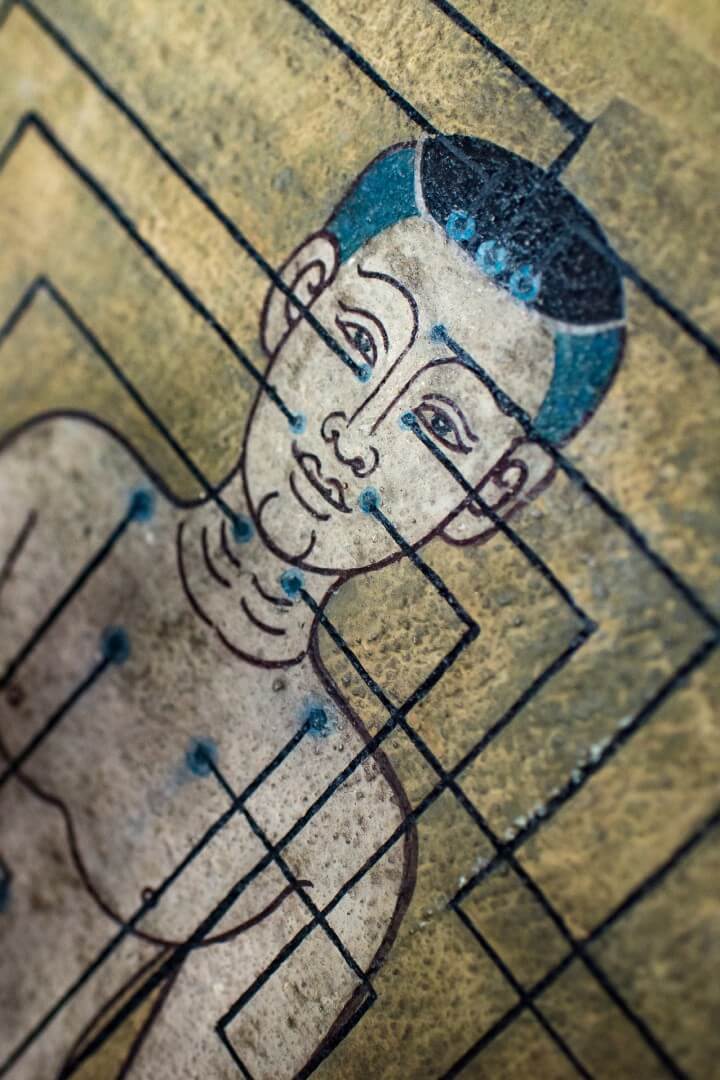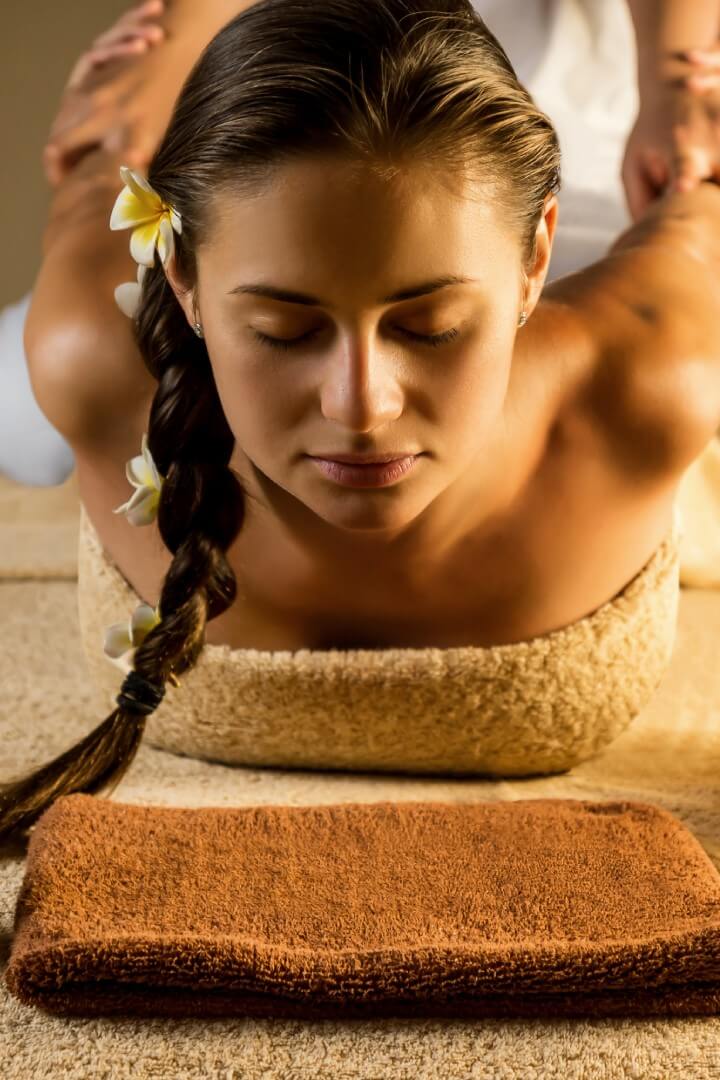Thai massage originated in India some 2500 years ago. It was initially utilized as a therapeutic art that combined Ayurvedic and traditional Chinese medical elements.
Unlike traditional Western-style rubs, it does not include reclining on a massage bed while a massage therapist administers oil to your body and plies your muscles and strain points.
What Exactly Is Thai Massage?
When talking of Thai Massage, note that it’s not just any regular massage. Thai massage differs from traditional massage in several ways. Typically, when you go for a massage, you lie on a massage table. Things are a bit different with Thai Massage. Doing a Thai Massage requires you to lie on a mat on the floor while the therapist works on your body. Secondly, when doing Thai massage, you don’t need to pull out your clothes. You lie down fully clothed and let the provider do stretching, rocking and pulling techniques to reduce stress, fatigue and improve general body flexibility. Of course in our Talon Thai massage we are very often requested to make an European style mixed with traditional massage – On the bed, covered with towel and oil used, for many people this is more relaxing massage .

Did you know that Thai Massage is also known as assisted yoga?
It is mainly focused on promoting perfect energy flow in your body.
Benefits of Thai Massage
Thai massage can help your wellbeing in various ways, large numbers of which are upheld by logical examinations.
Beneath, we investigate six key advantages that are upheld by research.
1.
It’s a Remedy for Headaches
If you have headaches or experience strain migraines, regular Thai massage might assist with facilitating your manifestations.
In a few minor examinations, including patients with constant cerebral pains, specialists tracked down that Thai massage decreased the force of both headache and pressure migraines.
In case you’re keen on attempting nonpharmaceutical solutions for cerebral pain alleviation, it’s significant that analysts inferred that the advantages of Thai massage could endure anyplace from a few days to around 15 weeks.
2.
Reduces stress
Stress is not downright terrible. Frequently, stress can be a positive inspiration that may push people to perform better and achieve more. It is beneficial in one’s life.
Be that as it may, a lot of pressure can adversely influence mental and actual wellbeing. Persistent or enduring, stress can prompt genuine ailments, including despair and cardiovascular sickness.
Thai massage utilizes delicate tension and extending methods to loosen up the body. A 2015 study discovered that Thai massage fundamentally decreases levels of a specific pressure marker present in the spit, called sAA.
The scientists reasoned that Thai massage is more viable at lessening pressure in solid individuals than essentially resting.
3.
Relieves Back Pain
Thai massage might be a successful, nonpharmaceutical method for decreasing backaches.
Scientists in Thailand concentrated on the impacts of Thai massage on a gathering of 120 individuals with vague low back torment. A large portion of the experimental group was treated with Thai massage and the rest with other moderate administration methods that included joint assembly (a procedure that provides for applying pressure), hot packs, and manual extending to excruciating regions.
The two gatherings were dealt with double seven days for quite some time, and the two gatherings had critical relief from discomfort.
Different examinations have tracked down that Thai massage lessens back torment related to trigger focuses — tight, complex muscle bunches — in the upper back.
4.
Improves Blood Circulation
Thai Massage can advance the dissemination of both blood and lymph using delicate stretches. These yoga-like stretches increment blood course, which fills the body’s tissues with oxygen. The massage promotes cell development and heart wellbeing.
One review analyzed the advantages of Thai foot knead in individuals with fringe neuropathy, a typical confusion of diabetes. The scientists tracked down that this massage worked on individuals’ equilibrium.
They accept that this is because it further developed blood dissemination, thus invigorating the somatosensory framework. It is a framework that assumes a significant part in balance.
Types of thai massage
Thai massage can be divided into two types according to the purpose: relaxation massage and massage therapy.
- Relaxing massage is a massage to promote health- relax the muscles.
- Therapeutic massage is a massage for a specific purpose. In the treatment of disease or treating patients such as massage to cure the sunken shoulder blade stiff neck massage.
Preparing for a session
While preparing for a Thai massage session, you must first understand a few things. Some of these things are:
- This massage is not done on a massage table. However the Europe – Thai style of massage can be done on the table with using of oil .
- The first thing is that this form of Traditional Thai massage does not involve a massage table. It is usually done on either a padded mat or a thin mattress.
- It is also worth understanding that you do not need to get undressed for this massage session. Usually, the masseuse or therapist will present you with a neatly folded set of pajamas. The pajamas must be loose to allow you ample flexibility for the session.
- In Traditional Thai massage There are no oils or lotions. But in Our Talon Thai Massage you will chose either you like with oil or not..
- Most techniques in this form of massage do not include the application of oils and lotions. However, there are specific forms of Thai massage with hot oil.

Thai Massage Precautions & Contraindications
Below are some contraindications for this massage technique that you should know about:
Hit and knee issues
A typical Thai massage includes moves like bending out of the feet. This technique requires the rotation of your leg, which comes out of the hip joint. The bending of the fit also requires you to rotate your leg and indulge your knees. Therefore, if you have hip or knee issues, this form of massage may not be suitable for you.
This is a condition where your leg hangs through or does not create a straight line when you lift it from the foot. With such a condition, you may want to avoid massage techniques requiring you to raise your leg straight from the foot as you will need to support your knee underneath using one of your hands. Hypermobility also affects the shoulder joint. In such cases, partaking in this form of massage could cause joint dislocation and other painful conditions. Thai Massage involves a lot of traction moves of the arm and leg raises.
Osteoporosis
This form of massage involves a lot of bending and direct linear pressure on muscles on top of bones. Osteoporosis is a condition where your bones are brittle and break easily. Naturally, partaking in the bendy moves during Thai Massages could result in serious health issues.
Spinal issues
Spinal issues are also a contraindication for this form of massage. A person with spinal issues like fused vertebrae and spinal stenosis should avoid stretches in these muscles.
In some cases, you do not have to avoid the massage completely. All you have to do is practice the following precautions;
- Ensure that you get a trained masseuse for the task
- Ensure to speak to a doctor or therapist before partaking in this form of massage if you have any pre-existing conditions
- If you have any aches after the first session, contact a doctor before going in for another session
